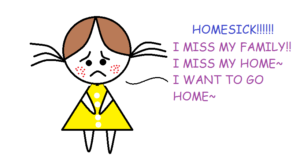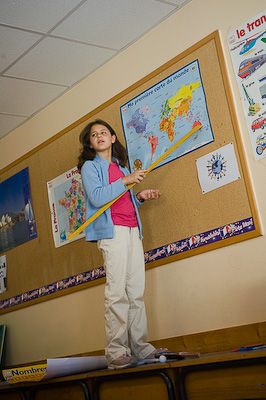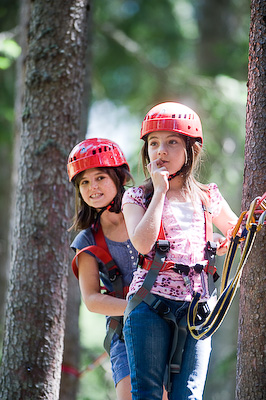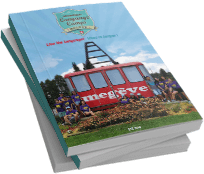Tag: benefit of summer camps
Language Summer Camp in Megève: 4 Convincing Reasons to Send Your Child
Introduction
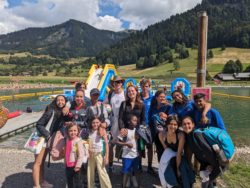
Reason 1: Immersive Language Learning Experience
One of the most effective methods for learning a new language is through immersion, and that’s exactly what our Megève summer camp offers. Immersion in a language occurs when learners are placed in an environment where they must use the new language to communicate for most of their day. This method accelerates language acquisition as it mimics the natural way children learn their mother tongue.
Our camp curriculum is designed by expert linguists and seasoned educators, ensuring that each child receives personalized attention suited to their learning pace. Whether your child is a beginner or looking to enhance their fluency, the diverse linguistic setting at Megève provides an ideal backdrop. From interactive language classes in the morning to practical conversational practice with peers throughout the day, the exposure is continuous and multifaceted.
Further enriching this experience are the stories from former campers who recount their rapid progress and increased confidence in using the new language. Such testimonials underscore the effectiveness of our immersive approach.
 Reason 2: Unique Cultural Exposure
Reason 2: Unique Cultural Exposure
Nestled in the French Alps, Megève is a hub of rich cultural heritage. Our summer camp leverages this unique location to provide children with firsthand experience of French culture. Cultural learning is intertwined with language instruction, with scheduled trips to local museums, historical sites, and participation in traditional festivals and markets.
These activities are not only entertaining but also educational, providing children with context to the language they are learning. This method of cultural immersion ensures that language learning at the Megève camp is not confined to textbooks but enriched with real-world experiences and interactions.
Reason 3: Development of Life-Long Skills
Beyond the linguistic benefits, our french summer camp in Megève is a breeding ground for a variety of life-long skills that are essential in today’s world. Campers develop independence as they navigate new experiences away from home, learn to manage their time and responsibilities, and make decisions in a supportive yet challenging environment.
Social skills are particularly enhanced through daily interactions and group activities. Children learn to communicate across language barriers, work in teams, and build friendships with peers from around the world, fostering a global mindset. Additionally, the camp’s diverse activities encourage adaptability and problem-solving, skills that are valuable in academic and personal settings.
Educators and psychologists support the notion that such immersive environments significantly contribute to overall child development. Engaging in a structured yet flexible schedule allows children to explore their interests in a safe setting, promoting personal growth and self-confidence.
 Reason 4: Fun and Safe Environment
Reason 4: Fun and Safe Environment
While the educational benefits are paramount, the enjoyment of the campers is equally important to us. Megève’s summer camp is designed to be the perfect blend of learning and fun. Our schedule includes a variety of recreational activities such as hiking, swimming, and arts and crafts, ensuring that every child finds something they enjoy. These activities not only serve as a break from learning but also help in applying the language in relaxed settings, making language practice enjoyable and stress-free.
Safety is our top priority. The camp is staffed by professionals who are trained to provide a secure and supportive environment for all children. Comprehensive safety protocols are in place, including 24/7 on-site medical support and regular updates to parents, ensuring peace of mind for families while their children enjoy their summer adventure.
Parents of previous camp attendees frequently express their satisfaction with the secure and nurturing environment at the camp, noting that their children are eager to return year after year. Their testimonials highlight the camp’s success in combining effective learning with a fun and safe summer experience.
Conclusion
Sending your child to our language summer camp in Megève is not just an investment in their language skills, but in their personal growth and future potential. The immersive language learning, coupled with cultural exposure, development of life-long skills, and a fun, safe environment, makes Megève an ideal choice for a summer that’s both enriching and enjoyable. The experiences and skills gained at the camp will serve your child well beyond the summer, laying a foundation for success in whatever path they choose to pursue.
A Summer Camp that foster independence
Unlocking Independence: The Transformative Journey at International Language Camp
At “International Language Camp” in the picturesque town of Megève, nestled in the heart of the French Alps, a remarkable journey of independence awaits young campers. This unique summer camp experience not only offers the opportunity to learn and master languages but also fosters personal growth, self-reliance, and the development of essential life skills.
A Multicultural Melting Pot
One of the standout features of International Language Camp is its diverse and inclusive environment. Children from across the globe come together, creating a rich tapestry of cultures and backgrounds. This multicultural setting exposes campers to a world of perspectives, encouraging them to step out of their comfort zones and embrace the unfamiliar.
Freedom to Explore
At International Language Camps, children are encouraged to explore their interests and passions. They have the freedom to choose from a wide range of activities, allowing them to follow their curiosity and discover new talents. This freedom of choice empowers campers to make decisions independently and take ownership of their experiences.
Adventures Beyond Comfort Zones
The camp offers a multitude of outdoor adventures, from hiking in the breathtaking Alpine landscapes to engaging in thrilling water sports. These activities push campers to step out of their comfort zones, overcome challenges, and gain confidence in their abilities. Conquering new terrains fosters a sense of self-reliance that stays with them long after camp ends.
Language Learning as a Catalyst
Language acquisition is at the core of International Language Camp’s mission. Campers not only learn to communicate effectively in French or English but also develop the confidence to use these languages in real-world scenarios. This linguistic competence further enhances their independence, as they can navigate global environments with ease.
Cultural Exchange and Empathy
Interacting with peers from different backgrounds encourages campers to develop empathy and respect for diverse perspectives. They learn to appreciate the value of collaboration and cooperation, skills that are crucial for both personal and professional growth.
Life Skills for the Future
The independence gained at International Language Camps extends beyond the campfire. Campers return home equipped with enhanced decision-making skills, self-motivation, and the courage to explore the world. These attributes prepare them to navigate the complexities of adulthood with confidence.
In conclusion, International Language Camps in Megève is not merely a language program but a transformative journey towards independence. Campers emerge from this enriching experience with a newfound sense of self, a broader worldview, and the life skills necessary to thrive in an ever-changing world. Join us at International Language Camp, where independence is more than a concept; it’s a way of life.
How summer camps prepare kids for college?
Sending children to summer camp does more than keep them entertained for the season – here are 10 ways it prepares them for the transition to collegiate life.
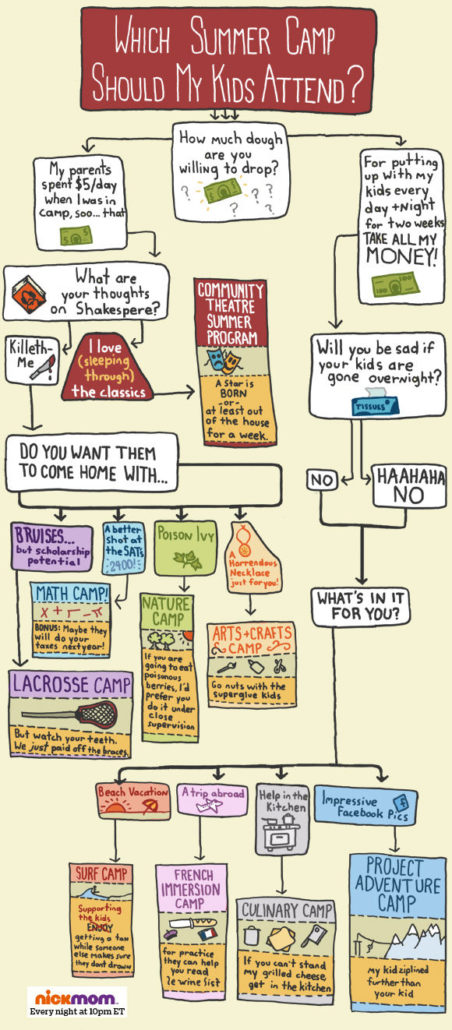
At age 7, I went to day summer camp and by 10 I began going to sleepaway camp. Summer after summer, I yearned for the end of school with excitement, though always with trepidation and a dash of worry as well. But the minute I opened the car door, or the bus pulled up to my camp I was at home, and that feeling never waned. Eight years after my first sleepaway camp experience, I headed off to college and that same mixture of emotions came along for the ride. Drawing on my summer camp experience, I was happy to discover, made the transition easier. Remembering the fun that superseded the fear, the compassion that outranked the chaos, and the learning that leveled the playing field helped more than any college preparatory book I could have read or any “what to know before you go to college” podcast I could have listened to (if those had existed at the time, of course !) What my camp friends and I learned stayed with us, transferred to others, and wove itself into the fabric of our being. As a camper and counselor, camp gave the informal credit I needed to prepare for college. Here at 10 things I learned at camp that helped with the transition.
Learn to accept change
This is probably the most significant lesson from camp that translates to college and then to life. Learning the only things we have control over are our attitudes, outlook, and responses is not an easy feat. Our cabins were decided before we arrived, and sometimes our friends weren’t with us or perhaps new friends left before the summer’s end. Counselors shifted each season and the new ones had very different personalities than our previous leaders. We could find these changes, be angry when they happened, and let it ruin our camp experience, or we could find a way to accept the change, experience the new and learn and grow. In college, friendships, roommates, and even majors change. Dealing with change isn’t easy but it’s fantastically necessary. As we progress in years, the changes we deal with get more difficult so our ability to accept what we can’t change must grow – and camp starts that process
Be flexible and go with the flow
You go to canteen and it’s out of Strawberry Shortcakes that day. The cabin night you were waiting for is rained out, so now your evening activity in indoors in the lodge. These things happen. Summer Camp teaches us to go with the flow. Our tongues turning blue from a new favorite popsicle, wearing pyjamas to evening program instead of wearing layers to the beach, and empathizing with a friend while focusing on having fun with new ones for the duration of camp. That flexibility is necessary in the college stage and beyond. Sometimes our choices are taken away, sometimes the aboard program is unavailable and sometimes we can’t get into that last class needed to complete our major until the following semester. Camp teaches us to let go; that the more relaxed we can be, the easier the shifts will become; and that the more flexible we are, the better it is for our health and well-being.
Embrace and learn from diversity
At some point in every camp experience, we meet people who are different from us. Showing interest in those differences makes us better people and learning from those differences widens our comfort zones and broadens our minds. Cabin and unit mates come from many backgrounds and all bring somethings different to the table. As the number of people with whom we interact increases, the amount of diversity we encounter grows. We meet people on day one of camp, and by day three we feel as if we’ve know them forever. Summer Camp facilitates meeting new people, lessens the fear in that meeting, and manages to make connecting with strangers more amazing than scary. Having that confidence in making new friends makes it much easier to do the same at freshman orientation. At camp and at school, we spend time with people and we learn their desires and struggles, likes and dislikes and upbringing and dream of what’s to come. Camp and college provide an opportunity to make those strangers become fast friends, take notice of and embrace the differences, and learn more about the world around us.
Don’t be afraid to be Yourself
We all have strengthes and weaknesses, successes and failures, likes and dislikes, dreams and aspirations, and thoughts that bring us utter peace. If all of those where the same for our bunkmates, camp would be boring. I loved swimming and arts and crafts. One of my best friends could spend her entire day at the farm, while the other two practically lived at the barn with the horses. There were those who loved the talent show, while others shied away from the spotlight. There were those who were leaders and other who were not. All of us have a safe place to grow at camp. University campuses and courses widen that playing field too, but those of us who went to camp learned at an early age that we could be ourselves and be proud of who we are. It’s those lessons we reach for in the dorm room during moments that are coupled with the fear at we might not be enough.
Everyone gets homesick
Perhaps it happened after you read a letter or e-mail from home. Perhaps is happened after visiting days. Perhaps is happened after a bad dream, or when you fell off a horse, got your first tick, or had that first bellyache at camp. At the one point or another, all of us had twinges of homesickness. But at the camp there is often a friendly shoulder, and ear to lend, or open arms for a hug that lessened the homesickness and reminded us we could get through. Homesickness happens at college, too, but at camp we learned there’s another side, another day, and always someone to help, whether it’s your roommates, a friend, a professor or an advisor. And sometimes we’re even better equipped to handle homesickness in college because we remember what it felt like at camp and how we overcame it. Feeling homesick happens to the most popular kids, the best athlete and everyone in between. Homesickness is real, but it’s manageable. I learned that lesson at camp.
Respect yourself and others
Summer camp provides us freedom we might not be used to while encouraging us to make good choices, take care of ourselves, and use good judgment. These lessons continue after we leave the grounds in August. Summer camp discourages bullying, teaches us to speak up for fellow campers and ourselves, and reminds us that although we’re away from home and school our character still counts and our actions have consequences. College life comes with privileges of freedoms, new people and new attitudes, and many of the same choices as camp. Remembering the advice of camp counselors from our youth who constantly reminded us to respect ourselves stays with us and often pops up in critical moments when we have difficult choices to make.
Share your skills and your stuff
Jill always brought the coolest clothes and stuff to camp. No one knew more about all things agricultural than Erin. Mr Bill could fix everything, and his wife made the best ices in the world (well according to us). Carolyn showed us how to make a one-match fire, and Maryanne introduced us to our favorite crumb cake recipe. Some people shared stuff, some shared knowledge, and other shared experiences and it all mattered. Those who had something to share felt good knowing they were able to help someone else. Those who benefited from the generosity felt a connection, a boost in positivity, and often a desire to continue to pay it forward. College is much the same. Sometimes it’s as simple as sharing a pizza, lending out a sweatshirt, copying class notes for a sick friend, or explaining a statistic problem a 3am to your stressed-out roommate. At the camp we borrowed clothes, lent encouragement and shared our knowledge. It was never about who had or knew the most or the best of anything: it was about those with the biggest hearts, the kindest ears, and the ability to be there. It mattered then, and it will continue to matter throughout college and the years thereafter.
Everyone has something to teach and to learn
Trish the nurse taught me to safely remove a tick. Mr Bill showed me how to chop down a tree. Laura taught us to sing our heart out, Millie taught us to cook, Adrienne showed us how to make our well-worn beaded camp bracelet, and I stayed late studying lifeguarding with Jackie. We all pitched in and we all offered up what we knew. But it was more than just tangible things, Krista taught me to deal with change, campmates taught me the magic of friendship, and hundreds of counselors taught me kindness, courage, resilience and perseverance. College was no different. We learn from our professor, our advisors, our friend, our surroundings, and often locals and strangers. Having an open mind, acknowledging that lessons come in all forms, having willingness to share what we know and showcasing the ability to listen and share. Camp introduced us to these lessons, and for that we are forever grateful.
Don’t be afraid to ask for help
The road from girls’ to boys’ camp was covered by the tree canopy and lined with shrubbery. At night, there were parts of the path where you could barely see the glow of the stars. Whenever we had events at boys’ camp, fear of that dark set in. Erin was always there with a hand to lend. If she walked in the middle of the road, anyone whose arms or hands were intertwined with hers was safe from the brush and the creatures of the night. In college, I never would have gotten through without the help of my science, and math minded friends. When the methods were confusing and laden with frustration, those friends stepped in to lend a hand. Camp taught us to not be afraid to ask for help, whether we needed a hug when we were sad, a boost to reach the top of the rope, a spot with that back-handspring, a buddy for swimming or a friend with whom to walk alone. Later in life, we were filled with the knowledge that asking for help only made us stronger, and we were often prepared to lend a hand when asked.
Face your fears
Nature’s creepy crawlies, their webs in all sorts of knobby corners at camp, and our bathrooms outside. Then there was the swim test on the first day of the season. Summer camps taught us the need to face our fears in order to conquer them, to not get swallowed up by those emotions, and to always offer to help others face their own fears. As our world grows, often so do our fears. College finds us in new spaces, with new people and new experiences. Each time we try to push past that comfort zone, there’s fear. Camp reminds us that those fears (whether failure or spiders) are normal, don’t make us any “less” and are conquerable. Jackie got back on the horse after she was thrown off. Jill got back in a canoe after she busted her foot, and I jumped off the biggest rock I’ve ever seen. We knew the future was full of unknowns, failures were bound to happen, obstacles would most certainly pop up, but we also knew all those things we had to overcome were manageable.
Stacey Ebert is a camper at heart who has spent more than 25 years in the camping and education industries in New York as a teacher, club advisor, counselor and aquatics director. She is a published writer, blogger, event planner, volunteer manager, and educator always in search of joy. She loves travel, spending time outside, and is an avid yogi. She has visited more than 50 of the world’s countries and met her Australian-born husband while on a trip in New-Zealand. Check out her blog at thegiftoftravel.wordpress.com
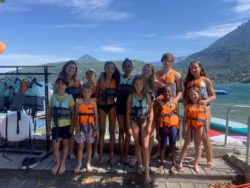 Reason 2: Unique Cultural Exposure
Reason 2: Unique Cultural Exposure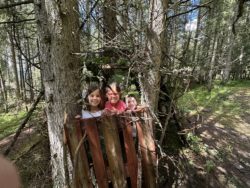 Reason 4: Fun and Safe Environment
Reason 4: Fun and Safe Environment